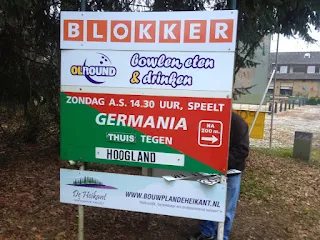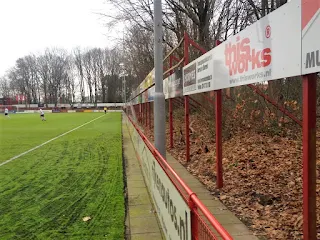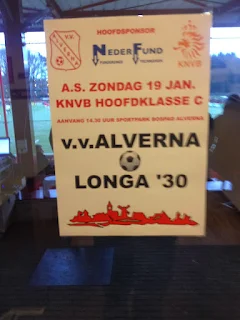RKSV UDI ’19, Uitspanning Door Inspanning 1919, to give them their full title is an amateur football club from the town of Uden in the east of The Netherlands between the city’s of Nijmegen and Eindhoven. The club was formed on May 11th 1919 at a meeting in the café-restaurant De Korenbeurs.
The following year a new clubhouse was opened at Parklaan, and in 1973 a women’s side was added to the club portfolio. The 4E Klasse A title was won in 1974-75 for UDI to regain their Derde klasse status.
Further progress was made in 1977-78 with a runners-up finish before the 3E Klasse B title was won in 1979-80 after the clubhouse was extended. The following season saw UDI clinch the 2E Klasse A title at the first attempt to reach Eerste klasse football for the first time.
The team remained in 1E Klasse E despite winning the title in 1982-83 after missing out in the play-offs before being relegated a couple of seasons later. The 90’s saw plenty of excitement at Parklaan as UDI started the decade by winning promotion back to Eerste Klasse.
The team went on to win 1E Klasse E at the first attempt to climb to the Sunday Hoofdklasse, which was the fourth tier of Dutch football at the time. Their spell lasted just one season as club staged a home friendly against Ajax, with the Amsterdamers winning 2-1.
In 1995-96 UDI lost a play-off game for promotion against EHC as the clubhouse received refurbishment. However, they weren’t to be denied in 1996-97 as the team won the 1E Klasse C title, while the ground was renamed Parkzicht.
In 1998 UDI qualified for the KNVB Cup after winning their Eerste klasse title before getting through the group stages to be rewarded with an away tie against Ajax. One hundred and sixty eight buses transported fans from Uden to the Amsterdam ArenA, where their side were defeated 9-0.
Following a sponsorship deal the club became known as UDI ‘19/Beter Bed which helped the team in their quest for honours when UDI won the Hoofdklasse B championship in 1999-00, before retaining it the following season.
Another Hoofdklasse title followed in 2001-02 prior to the runners-up spot in 2003-04 when the continued growth of club membership led to a new clubhouse being erected. To celebrate a pre-season match with Galatasaray took place in 2005.
A partnership was forged the following year with both NEC and PSV. It came as somewhat as a surprise when UDI were relegated in 2007-08. Undaunted, the Eerste 1E Klasse D title was won at the first attempt to herald a return to the Hoofdklasse.
To celebrate UDI’s ninetieth anniversary in 2009, PSV sent a team to Parkzicht. The Russian State Circus also spent a week performing at the club, as all aspects of the club continued to prosper.
Sam Wassenberg finished top of the scorers in 2009-10 as UDI consolidated prior to Tim Strijbosch regularly netting the following campaign before the team was moved to the C Klasse for one season.
The team ended third in 2014-15 and then fourth twelve months later before winning a place in the newly formed fourth tier Derde Divisie for 2016-17 under coach Bert Ruijsch. The standard proved too tough with UDI lasting just one season.
The Hoofdklasse was now the fifth level when UDI rejoined and finished fifth in 2017-18. Before a ending mid table for the next two seasons, including the 2019-20 campaign which was aborted prematurely owing to the Coronavirus outbreak.
UDI ’19 will appear in Hoofdklasse B Zondag in the 2020-21 season.




























































